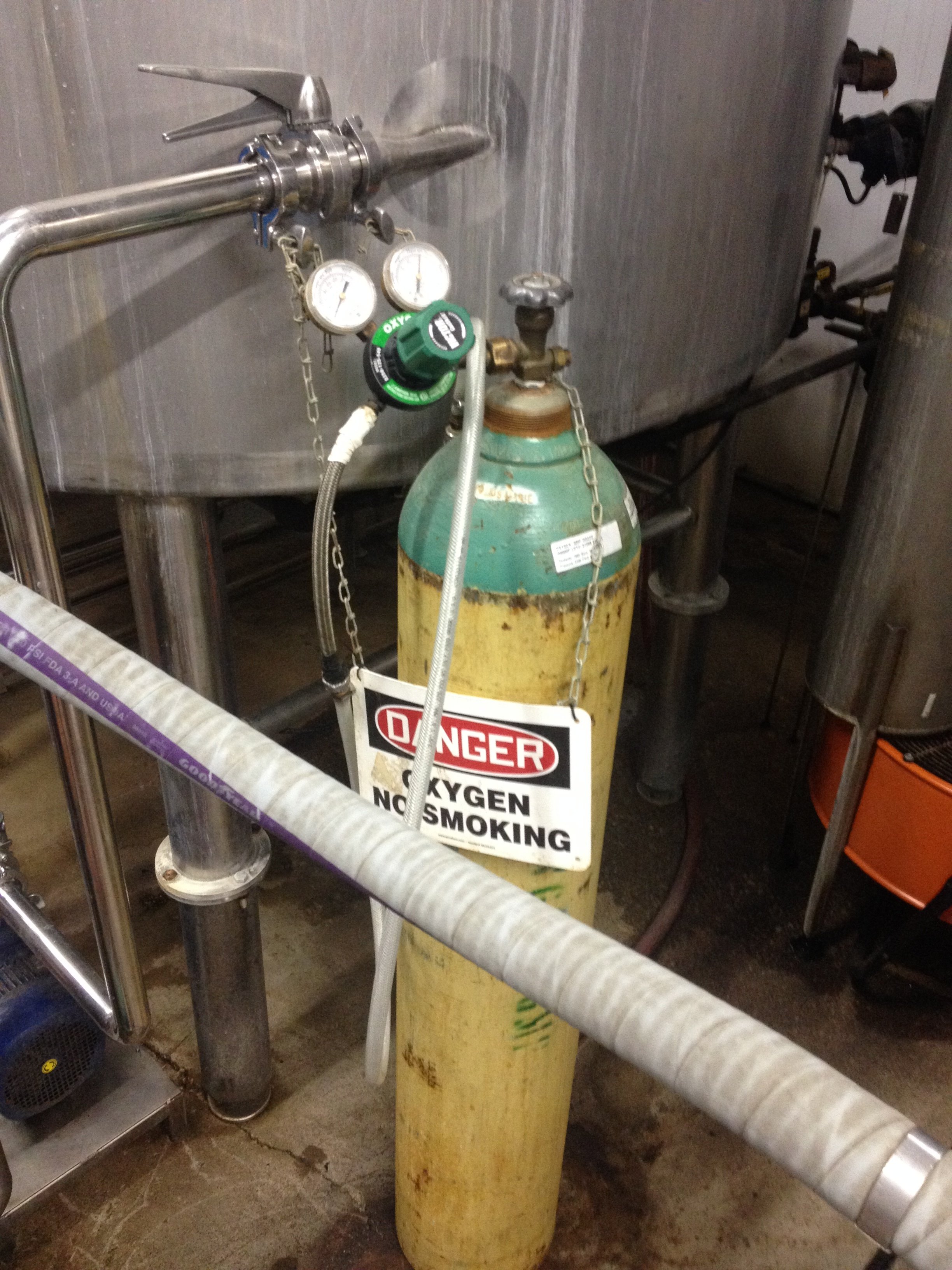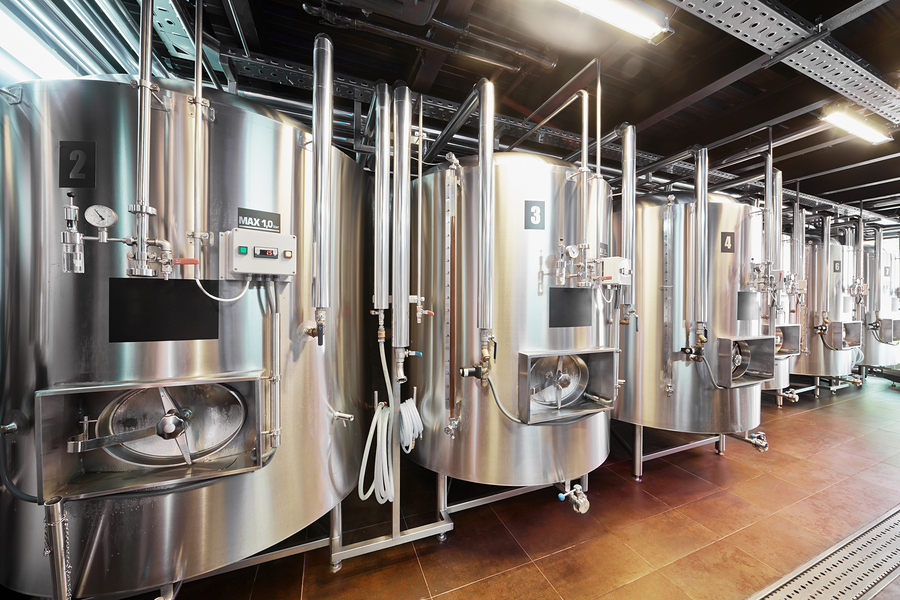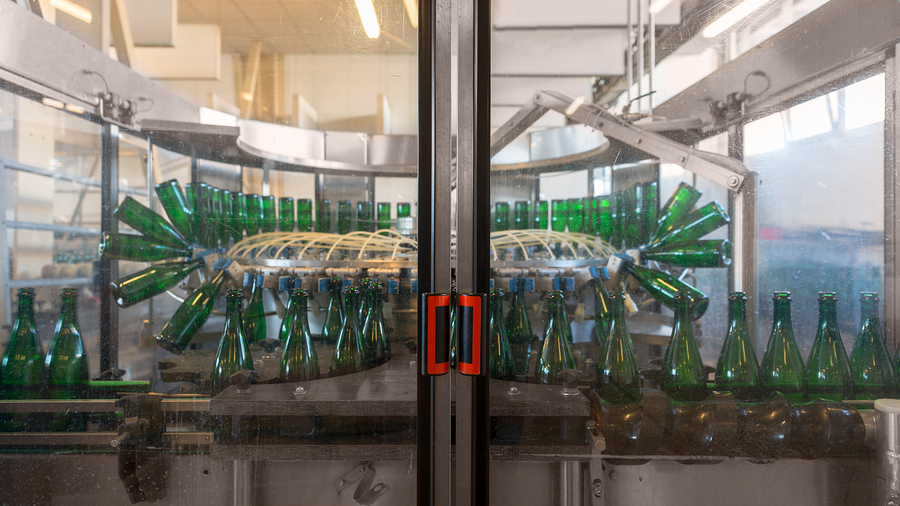
Example of a one-way keg.
One-way kegs are becoming the norm in terms of imported specialty beer shipped to the United States. This allows a brewery to not overextend their cooperage fleet while reaching more customers. The added benefits to shipping weight and costs also help to keep costs down. Now these same options are making their way into American Craft Beverage producers’ hands.
Whether you’re looking to expand your local fleet of kegs or ship out of state or overseas, one-way kegs may be a cost effective way to sell more beer without a serious investment in expanding your stainless steel fleet. There are several options available depending on your needs.
One-Way Keg Advantages
Shipping
The savings with one-way kegs come in shipping costs. These can be broken down into two areas. First, the kegs weigh significantly less than than their steel counterparts. For instance, a 20L or 30L Dolium keg weighs just under 3lbs while a steel 1/6bbl weighs about 17lbs empty and a stainless 1/4bbl/30L weighs 23lbs. When added to the weight of the liquid inside the keg, one-way kegs provide significant savings when you stack several pallets of kegs together for shipping.
The second way to save money is that you don’t have to ship the kegs back to your brewery. Steel kegs have to be returned to your fleet. If you’re shipping within your own state or to a close by market, you can recover your cooperage quickly. However, the further your kegs are from your brewery, the longer they spend empty, which means that’s a capital investment that’s not generating revenue.
Capex Avoidance
Buying steel kegs usually requires large, expensive purchases. One-way kegs are cheaper per unit and as their popularity increases, more dealers and local sources are popping up across the country increasing availability. This allows producers to buy a few kegs here and there as needed. If money is tight, as it often is with new companies, only buying enough to meet your current needs can allow a you to route tight capital into priority expenditures.
Maintenance
Since one-way kegs are also one-time use, they don’t require cleaning and maintenance. This will save money on cleaning supplies as well as keg parts. If you’re a new producer and don’t have a keg cleaning system, the lack of maintenance is a big bonus.
Recyclability
One-way kegs are made from 100% recyclable materials. Some are 100% plastic while other manufacturers put the plastic containers in a recyclable cardboard outer shell. This can be an advantage or a disadvantage, depending on your perspective. Stainless steel kegs can be used for years and are also recyclable.
One-Way Keg Disadvantages
One-Way Use
The one-way kegs are only one-time use. Your costs are the same over time. The one-way keg then becomes an added cost to the final product. With stainless steel kegs, each time you use it, the initial price of the keg goes down. Kegs are a very durable and reusable asset. Over time, stainless kegs have a higher return on investment.
Assets
Stainless steel kegs are an asset with all the benefits towards valuation and taxes that the term implies (check with your tax professional for details). One-way kegs are only used one time and then disposed.
Dolium

Dolium is a popular one-way plastic keg in Europe.
Dolium, which is essentially a plastic keg, is probably one of the most popular one-way kegs being used in Europe right now. They function exactly like a standard steel keg and even have multiple coupler options available which will come in handy depending on if you’re going to ship your kegs domestically or export them overseas. Dolium kegs come in 2 volumes and 3 configurations. They have a 20L in both a short and a tall “slim” version, similar in shape and space use to a stainless 1/6bbl or 20L keg as well as a 30L size.
Brian Callahan of Woodinville, Washington’s Elemental Cider used 30L Dolium kegs after they expanded to Oregon for their one-off releases as a temporary solution until they could increase their fleet of stainless steel kegs. “The Dolium’s served a valuable purpose when we didn’t have enough kegs to keep up with demand. We could buy them a few at a time from our local distributor. That allowed us to keep the steel kegs for our main products and the local market here in Seattle,” said Callahan.
Advantages
Dolium are probably my personal favorite one-way keg. They’re durable and pretty foolproof. They fill and function like a normal keg. In the years I’ve worked with them, very few have broken and the fail rate is low. I’ve only had a few returned and in most cases, it was the product in the keg and not the keg itself.
Disadvantages
The shape of the short 20L and the 30L is a bit wide compared to the “slim” steel versions. This can cause trouble when fitting them into a very tight space like a kegerator.
Petainer

The Petainer is like a pop bottle housed inside a cardboard container.
Petainer is another plastic one-way keg that, like Dolium, functions like a regular keg. You can also get them with various couplers depending on the destination market. Petainer kegs are most famous for being shipped in cardboard boxes. Basically, they’re a giant “2L pop bottle” inside a protective cardboard container.
Initially, Petainers came with a pressure relief setup on the coupler, meaning anytime you untapped it it would release the pressure inside the keg. This was a problem for the craft beer scene which likes to remove kegs and put them back on for events and rotation. Now, they offer a non-pressure relief option. Be sure to double-check which option you’re purchasing.
Louisville, Kentucky’s Against the Grain Brewery started out using Key Kegs but eventually switched to Petainer kegs due to costs and the coupler. It was hard for customers to find the specific Key Keg coupler and expensive when they did. Petainer kegs were also about half the price of Key Kegs and could be equipped with a standard American “D” type coupler fitting. “There are advantages and disadvantages with all one-way kegs. Petainers were the best option for us for price and reliability. When we first started using them, we had to order containers out of the Czech Republic. Now there are US distributors and we can buy what we need,” says Jerry Gnaby of Against the Grain.

The standard American D system keg tap coupler.
I asked him about the cardboard outer shell and what were the disadvantages and advantages: “We’ve been working on improving the structure on these for a while. They do provide a lot of real estate to put what you want on them. You can look in a beer cooler and spot ours right away. They’re very distinctive.”
Advantages
Petainers are light and easy to ship. The cardboard container also provides a larger surface for custom artwork to advance your branding.
Disadvantages
The boxes are fairly bulky and don’t fit well in tight spaces. Additionally, the time in a damp beer cooler can render it soft which can lead to ripped handles or potentially a keg falling out of the bottom. Many customers remove the box prior to using. Outside of their protective container, they are a bit fragile.
Key Kegs

KeyKegs feature an internal bladder inside an outer plastic shell.
KeyKegs are one of the more common one-way alternatives being used in European beers being exported around the world. What makes them unique is that they don’t function like a standard keg. KeyKegs contain a protected bladder inside of a double outer plastic shell. Air, or another propelling gas, is pumped between the shell and the bladder to squeeze the liquid out of the top. The Key Keg uses a proprietary coupler.
Advantages
The biggest advantage is that propelling gas never touches the beer inside the bladder. If you have a non-carbonated or “still” product, a KeyKeg will protect the product from being exposed to CO2 which is a big selling point in products like beer, mead or wine. The proprietary coupler can also help maintain the handle. Once a unique coupler is installed at a bar or restaurant, proprietors are less likely to change it for a while. This may allow a company to keep that line a bit longer than would otherwise be possible in today’s world of constant rotation.
Disadvantages
Magic Rock Brewing features a review of KeyKegs on their website. The biggest disadvantage noted by the brewery is that "they require their own specific coupler" and that they "won't work with any other coupler." Depending on state laws, it may be illegal for a wholesaler or brewer to provide a KeyKeg coupler, requiring the retailer to purchase it.
There are a variety of reasons to use one-way kegs as part of your brewery’s keg and expansion strategy. Whether it’s a temporary solution or a permanent long-distance shipping solution, one-way kegs might be the right option for your growing business.




.png?width=2254&height=703&name=longitude_logo_final_transparent%20(1).png)
Share This Post